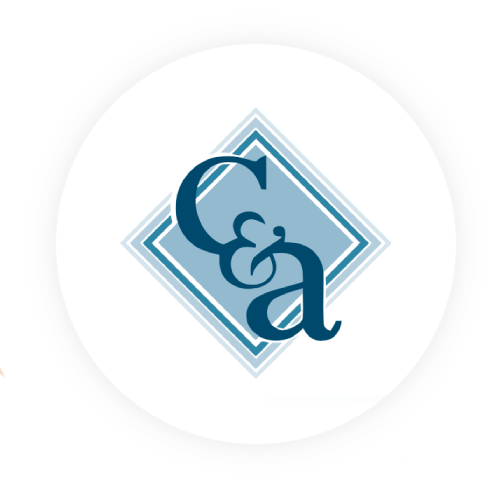So often when we are working with an organization, we will review competency documentation and often see confusion regarding what constitutes an assessment of competence. Several years ago, The Joint Commission provided clarification on this topic by providing definitions within the glossary of terms of each accreditation manual.
Assessment of Competence simple definitions:
Education: Development of knowledge. Where you learn theory or renew your knowledge of theory.
Training: Development of skills. Where you learn the skills to deliver on the theory.
Competence: Where you demonstrate proficiency in the delivery of the skills and application of the theory.
In summary, the definition of competent is having the necessary ability, knowledge, AND skill to do something successfully.
We agree that before you can be competent you must be educated and trained. Competency requires an assessment of the individual's ability to perform a skill in a certain manner. Competencies are required not only during initial orientation but need to be assessed and documented minimally once every three years, or more frequently as required by either local policy, standard, regulation, or law. This does not mean you need to reassess the same competencies every year unless the frequency for reassessment of that specific skill is set within the regulations or standards. The Joint Commission featured Competency Assessment in their Quarter 4 2020 Heads Up Report. They shared with organizations the following:
Reasons why competency is frequently cited on survey:
- Processes and procedures for competency assessments are unclear, incomplete, or inadequate.
- Those administering the competency do not have the educational background, experience, or knowledge to evaluate an individual on a particular skill.
- The organization fails to monitor and track competencies so that staff are reevaluated in the required period.
- Documentation is missing within the Human Resource file, or the file documents are incomplete.
- Leadership failure to oversee the competency process.
In addition, we would add that many organizations do not have a well-defined process to determine if and when a competency assessment would be required. We encourage organizations to utilize the same approach when selecting competencies for staff as we see used within most Quality Programs. Selecting processes that are High Risk, Low Volume, Problem Prone or required by regulation work well. Below we have listed several examples of competencies that would fit into each category:
Competency examples: HIGH RISK
- High Level Disinfection Skills
- Sterilization Skills
- Infection Prevention Skills
- Post-Surgery/Procedure Room Cleaning
- Post-Surgery/Procedure Equipment Cleaning
- Post-Surgery/Procedure Instrument Cleaning
- New Technology & New Equipment
- New Procedure Techniques
- Expanded Roles & Responsibilities
Competency examples: PROBLEM PRONE
Consider using other sources of data to determine competency needs. Examples include data related to incidences, near misses, medication errors, patient feedback, results from mock surveys and survey performance and recommendations from peer organizations based upon national trends. Some examples include:
- Hand Hygiene
- Donning - Doffing of PPE
- Testing Opportunities: False positive tests? False Negative tests? Out of Range?
- Sudden increase in IUSS Rate
- Medication Labeling Issues
- Time Outs- Undivided attention
Competency Examples: LOW VOLUME
- Malignant Hyperthermia response
- Code Response
- Surgical Complication Response
- Fire Response - Evacuation Response
How do you avoid a potential deficiency while enhancing quality and safety?
-
Review your policies and procedures-
- Does your policy define the process used to determine when a competency assessment is required?
- What process is in place for competency assessment (initial and reevaluation)?
- What are the competency documentation requirements?
- Are timeframes for initial and reassessment of competencies spelled out?
- Does the competency meet the specific requirements of the regulation or standard?
- Do you have a process to determine the competence of contracted staff?
- Who is administering the competencies? Do they have the education, knowledge, and skills?
- Is education/training regarding competency assessments provided to all staff who conduct competency assessments?
-
Interview your staff-
- Do staff understand what the process is for an initial competency assessment and the purpose of this assessment? How does this differ from the reassessment process?
- How do staff demonstrate the knowledge, skills, and abilities to conduct competency assessments?
- Do leaders provide appropriate oversight and ensure that competency assessments are completed when due?
- Are staff aware of the competencies that they must demonstrate and must maintain for assigned job responsibilities?
-
Assess your environment-
- Review your competency forms annually to be certain they are current and relevant. Ensure that forms are collected and capture necessary information (names of staff members, date of completion, name of evaluator, outcome of assessment).
- Ensure that designated leaders review and verify competency requirements specific to each role under their supervision.
- Ensure that staff are assigned to specific tasks based upon the competency assessment results.
-
Evaluate implementation-
- Review HR files and make sure that required competencies are completed, reflect the achievement of competency, or contain the actions taken to achieve competency and are within the required timeframes.
Summary
Competencies are the responsibility of all healthcare organizations to ensure that staff are competent and can perform the skills and job responsibilities to provide safe and high-quality care to their patients. Does your documentation prove it? Will it pass the test?
References
Heads Up publication from Joint Commission 4Q2020.
National Library of Medicine, Health Professions Education: A Bridge to Quality -The Core Competencies Needed for Health Care Professionals.
For questions or to learn more contact the C&A team at 704-573-4535 or email us at info@courtemanche-assocs.com.

